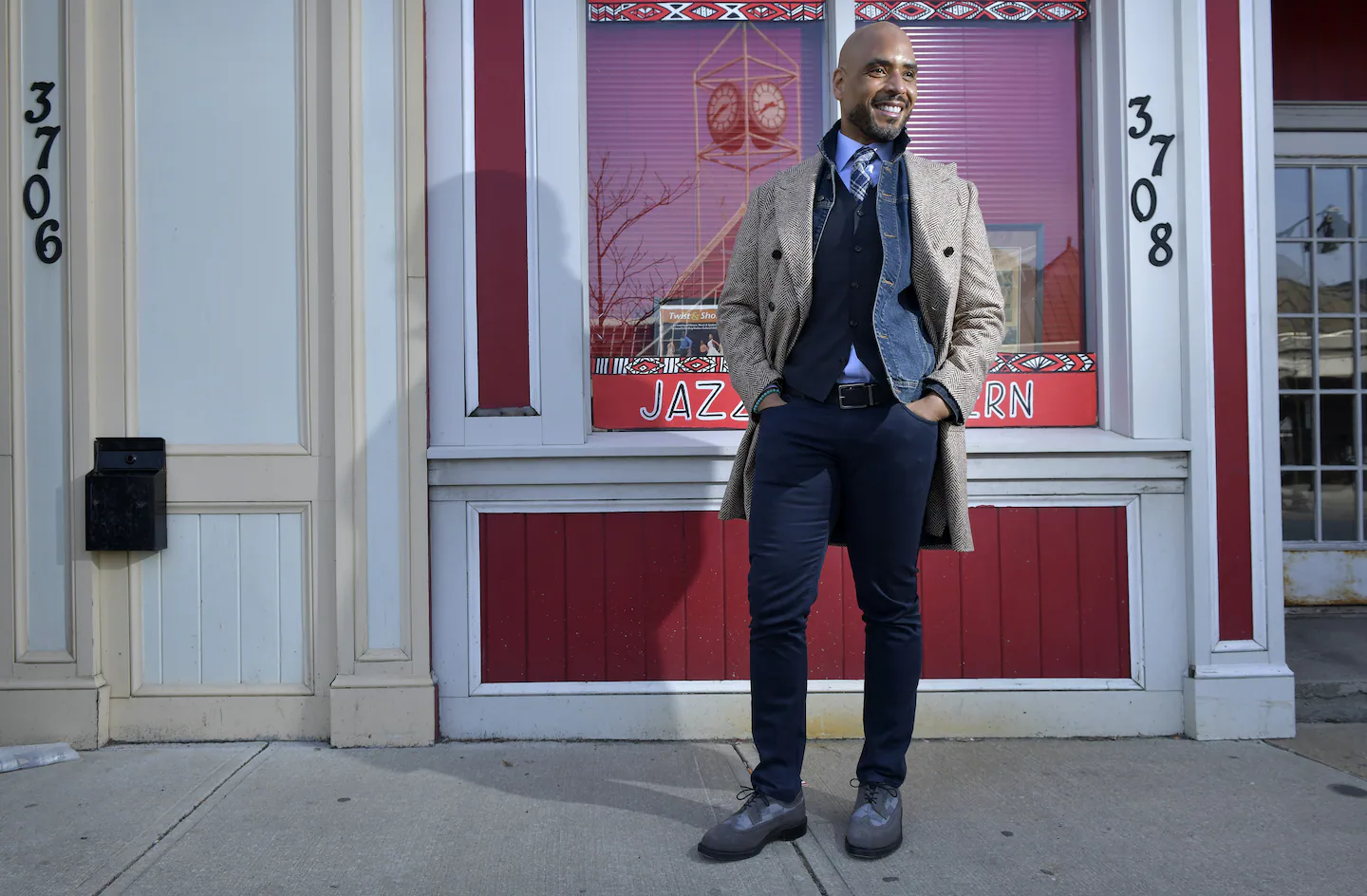Copyright International Business Times

With the real estate market in freefall, industry veterans are warning that immediate and significant evolution is a matter of survival. This isn't about simply hustling a little harder, spending more on advertising, or building a larger network, they say. It's about completely redefining how you do business. This spans everything from mindset to branding, to technology and more—essentially every single element of your real estate business. There's no single driving force here. It's a proverbial perfect storm of several factors colluding to decimate an industry that has enjoyed a steady and meteoric rise for more than a decade. We've watched home prices steadily rise, starting shortly after the 2008 housing crisis, while interest rates held firm at historically low rates. During that time, new listings would sell incredibly quickly, often following intense bidding wars that drove prices to significant profits. Lenders, eager to capture every opportunity they could, competed aggressively on rates and underwriting, flooding the market with cheap money. The only possible outcome this could have created was exactly what we see in today's market—both home prices and rent have been driven to unsustainable levels due to housing demand and easy financing. Unfortunately, there's no such thing as a free lunch, and the "bill" is now coming due in the form of a drastic market correction. Most real estate professionals are not prepared for what's coming. Here's how the market is correcting While the Federal Reserve had kept interest rates artificially low for years in an effort to encourage economic activity, they recently were forced to raise them in an effort to tamp down growing inflation. The immediate outcome is that mortgage rates went up dramatically, virtually overnight. Buyers with excellent credit scores went from rates in the 2-3% range to the relatively staggering increase we're now seeing in the 6-7% range. While today's rates are still relatively low compared to the historical average of around 7.70%, when combined with today's home prices, they're making homeownership unaffordable for many. Especially when you factor in the significant increase in costs on everything across the board due to inflation. This has suppressed home sale transaction volume to levels we haven't seen since 2010, and the market is cratering as a result. The downstream impact from this will be far larger than most people realize. Initially, it will drive a lot of agents, mortgage, title, and appraisal professionals, and others connected directly to real estate transactions out of the industry because the volume no longer exists to support their salaries. Soon after that, the downstream tangential industries will be affected too, such as small contractors, big box home improvement stores, and interior design professionals. Derek Carlson, president and managing broker with Realty ONE Group MVP explains, "Many real estate agents sell fewer than 10 homes per year, and for those operating at the lower end of that range, it can be difficult to earn a sustainable income. Commissions in real estate are always negotiable and are agreed upon between the parties involved in the transaction. But in many traditional brokerage models, even after the transaction is completed, agents may only keep 50 to 70 percent of their portion because the brokerage takes the remaining share. That means the agent's actual earnings can be far lower than people assume." He contrasts that with his firm's model, saying, "Our agents keep 100 percent of their earned commission and simply pay a small flat fee per transaction. When the market is competitive, keeping more of what you earn matters. Agents can reinvest in better marketing, education, client service, and long-term business growth. In today's market, business decisions must be intentional. Leadership, training, and financial efficiency are not optional anymore. They are the differentiators." Carlson has employed more than 4,000 agents across his companies and acquired multiple brokerages over the years, and he says he's seen this cycle repeat with each market correction. According to experts, the downsizing across the industry, which has already started, will be brutal and will likely rival what we saw following the 2008 housing crisis. Evolution in the real estate industry has now become a matter of survival. But while the market is heading into a deep recessionary period, Managing editor for Tampa Bay Business & Wealth, a publication deeply integrated with the real estate industry, Chuck Merlis, says it's not the end of the world. "Real success in real estate has never been about timing the market. It's about understanding people, building trust and creating value no matter the cycle," he explains. His statement highlights the importance of understanding fundamentals while evolving quickly to changing market conditions. What worked over the last several years doesn't any longer Over the last decade, winning in the real estate industry has been relatively easy. Historically low interest rates and a long running buyers market meant that agents could simply show up and deals would fall into their laps, and these deals would close quickly and often well above asking price. Many had become nothing more than glorified order takers with a real estate licence, but that's no longer the case. Today, it's tougher than ever to land a listing, and carrying it across the finish line has become even more difficult. Carlson says these agents are going to be in for a rude awakening very soon. "Agents who have been relying on passive inbound leads are going to find themselves standing around with a lot of free time on their hands pretty soon if they haven't already," he explains. Things have become just as bleak for investors. While it was once easy to find a property, either fix and flip or buy and hold, and generate a handsome profit in the process, record prices and higher interest rates have made that exceedingly difficult. Viable opportunities are few and far between today, and investors need to understand the market and their operational costs better than ever in order to survive. Showing up isn't enough anymore. Real estate professionals need to adapt quickly and aggressively, eliminating what no longer works and implementing what is now required for success in today's more competitive and uncertain market. How real estate professionals must evolve now Real estate veterans who have endured previous market corrections say one of the biggest changes needed now is a shift in mindset from being passive to being proactive. Real estate professionals must stop waiting for opportunities to fall into their laps, and instead, develop a proactive strategy to find and create as many opportunities as possible. Even though a growing number of people are leaving the industry due either to layoffs or their own inability to generate enough income, transaction volume has declined dramatically so those who remain are now forced to compete for far fewer opportunities. In other words, competition levels are still just as high as ever, but now it's harder to complete a transaction. And because transaction volume will likely continue to decline as the economy further weakens, this problem will only get worse. This means real estate professionals must not only build a trustworthy and authoritative personal brand that helps clients see the value in working with them specifically, but also become more effective marketers to build an engaged audience of potential clients. Carlson says that agents who rely too heavily on their brokerage's reputation to drive business will find themselves struggling in today's market. "A powerful brokerage brand is a tremendous advantage — it provides credibility, training, culture, systems, and a sense of belonging. But clients don't choose to work with a company alone. They choose a person. In today's market, consumers want to work with an agent they know, trust, and feel a connection to. That requires each agent to intentionally build their own identity within the larger brand. Every agent should have a web presence that reflects their own name and professional identity — something that showcases client reviews, educational resources, neighborhood insight, and their story. It should be clear why someone would want to work with you." he warns. "As someone who built a successful real estate career first as an agent and then as a broker, this is something I've always placed a tremendous focus on," he explains. "You should have a website with a domain that matches your own name, filled with useful content, reviews from previous clients, resources and your contact information." Carlson also urges agents to post regularly on social media but with an emphasis on real substance. "Post regularly, but make it valuable. Focus on answering the questions buyers and sellers are already thinking about, instead of just promoting yourself. When you educate your audience, you demonstrate expertise and build trust. And trust is ultimately what wins in this market," he says. Doing so helps agents stay visible while showing off their expertise and personality. But effective marketing, on its own, isn't enough. Clients are looking for certainty, and that, real estate veterans say, is something that can give you a tremendous competitive advantage. This is where education comes in. Many real estate professionals get complacent, especially when the market is firing on all cylinders, and because they stay so busy doing the work, they fail to continue their education. This is a huge missed opportunity because the industry is always evolving. If you're not staying up to date on which strategies are currently working and which aren't, changing laws and regulations, and how others are using technology, for example, you'll be limited by outdated thinking. You want to build a larger toolbox, so to speak, to enable you to operate more efficiently, more effectively, and to close deals others can't. Tatiana Zagorovski, a real estate investor and licensed real estate agent with Trio Realty Partners, says that creative financing is one of the tools she uses to close deals that would otherwise fall apart. "Most people are only familiar with traditional lending, but in many cases, that's just not viable. Maybe a buyer or seller has to close faster than a lender is able to, or they might have a situation that doesn't work with standard underwriting, or there could be countless other reasons. Most real estate professionals will simply give up on these deals, and that limits the number of transactions they can close. But if you understand creative financing strategies, you'll have the opportunity to close deals that others can't and keep revenue flowing," she explains. That can mean the difference between staying in business or being forced to throw in the towel. Experts say it's also wise to leverage your personal network for other potential streams of revenue. The typical real estate professional often has between 100-300 industry contacts in their network. That's a lot of people, and many of them offer products or services that are not direct competition to you. This creates a perfect opportunity to earn a commission for simply sending a potential client to another company. It's also a great way to make yourself valuable to those people in your network, making them more likely to refer business to you. This is something Zagorovski recently doubled down on. "There are only so many deals to go around right now and that number is going down every day and all signs point to that trend continuing for the foreseeable future, so I decided to develop additional revenue streams that won't monopolize my time. I came to the realization that there are lots of people in my network who provide valuable products and services, and I can make money by simply referring business to them," she says. Zagorovski has already started leveraging this strategy to increase and diversify her revenue, and in doing so, is making herself far more valuable to the people in her network. And because she's helping her contacts to generate additional revenue without any extra effort or cost, she's helping them stay in the industry longer, which helps her to maintain a larger network of people who can potentially send referrals to her. It's a simple and brilliant strategic move. This will be a defining moment for real estate professionals There is no avoiding what's coming for the real estate industry. Decades of kicking the can down the road has led to today's unsustainable real estate market, and the very measures intended to reduce inflation and spur economic activity are responsible for the conditions we're now seeing. The harsh reality is that the market isn't declining—it's simply correcting. The nuance is subtle, but important because the market has been artificially propped up by these policies, which we can no longer afford to continue. And that's actually a good thing because the correction will ultimately result in a more stable and affordable market. Merlis sums the situation up perfectly, saying, "The market isn't broken. It's correcting the habits of an industry that got too comfortable. The professionals who stay curious and strategic will survive," and his advice serves as a survival plan for real estate professionals.



